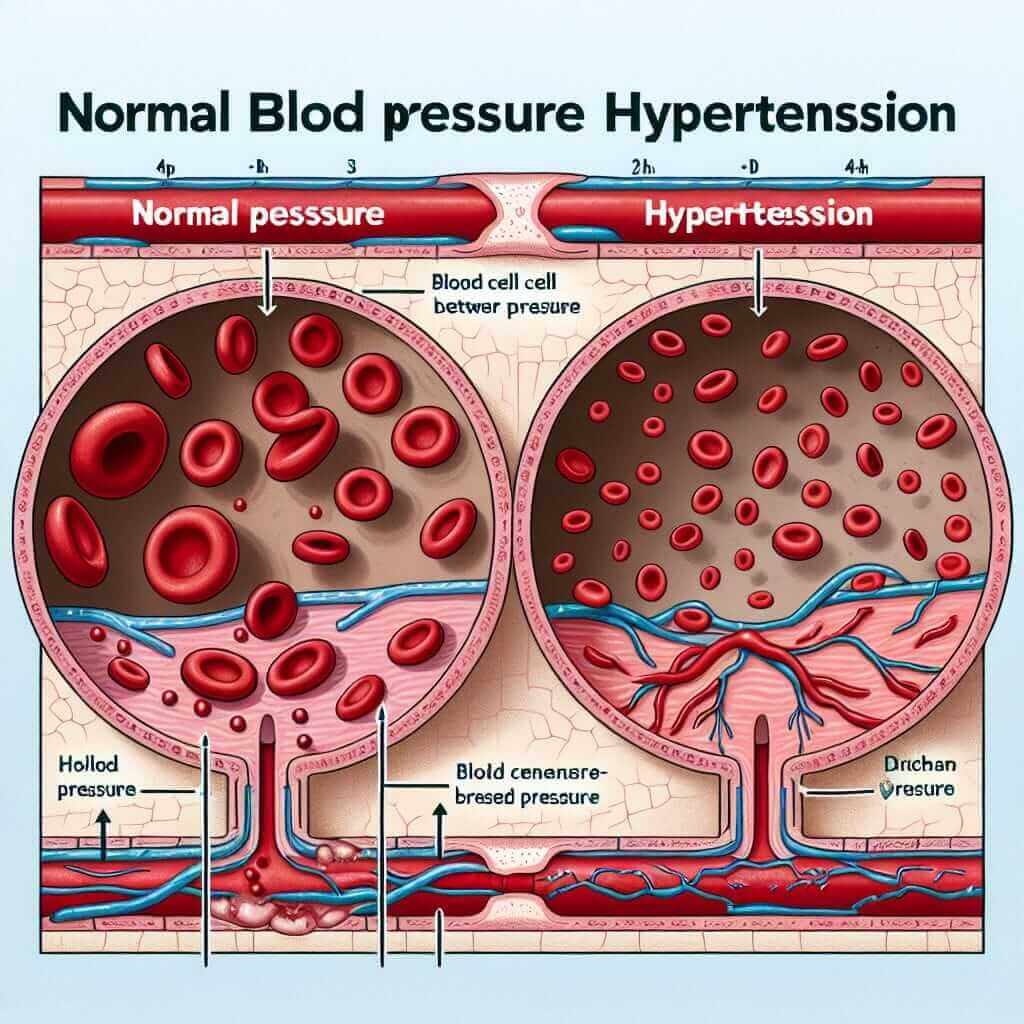Hypertension, a prevalent condition worldwide, often appears in IELTS Reading and Listening sections, particularly in health-related contexts. Mastering this term and its related vocabulary is crucial for achieving a high score in your IELTS exam.
Synonyms and Antonyms:
- Hypertension: (noun) /ˌhaɪpərˈtenʃən/ High blood pressure.
- High blood pressure: (noun) /ˌhaɪ ˈblʌd ˌpreʃər/ A condition in which the force of the blood against the artery walls is consistently too high.
- Elevated blood pressure: (noun) /ˈelɪveɪtɪd ˈblʌd ˌpreʃər/ Blood pressure that is higher than normal but not yet in the hypertensive range.
- Normal blood pressure: (noun) /ˈnɔːrməl ˈblʌd ˌpreʃər/ Blood pressure that is within the healthy range.
- Hypotension: (noun) /ˌhaɪpoʊˈtenʃən/ Low blood pressure.
Example: “Hypertension, also known as high blood pressure, is a major risk factor for heart disease.”
Understanding Hypertension
Meaning and Pronunciation:
Hypertension, pronounced /ˌhaɪpərˈtenʃən/, signifies a chronic medical condition where the pressure exerted by blood against the walls of arteries is persistently elevated.

Prevalence in IELTS:
This term frequently appears in IELTS, especially in passages discussing health, lifestyle, and medical research. Understanding its meaning and usage is essential for correctly answering questions.
Applying Hypertension Vocabulary in IELTS
Listening Section:
You might hear “hypertension” in a lecture about cardiovascular health:
- “The speaker emphasized that hypertension often has no symptoms, making regular checkups crucial.”
Reading Section:
A passage on lifestyle factors affecting health might state:
- “Studies have shown a strong correlation between a sedentary lifestyle and the development of hypertension.”
Writing Task 2:
You could use “hypertension” in an essay discussing healthcare systems:
- “Governments should prioritize public health initiatives that address preventable conditions like hypertension and diabetes.”
Speaking Part 2:
Describing a health-conscious individual:
- “My grandmother is very disciplined about her health. She exercises regularly and follows a balanced diet to manage her hypertension.”
Expanding Your Lexicon:
Collocations:
- Essential hypertension: Hypertension with no identifiable cause.
- Secondary hypertension: Hypertension caused by an underlying medical condition.
- Malignant hypertension: A severe, rapidly progressing form of hypertension.
- Hypertensive crisis: A medical emergency characterized by dangerously high blood pressure.
- Manage hypertension: To control blood pressure through lifestyle changes and medication.
Idioms:
While there are no specific idioms related to “hypertension,” you can use expressions like:
- “A ticking time bomb” to emphasize the potential dangers of untreated hypertension.
- “Take (one’s) health seriously” to highlight the importance of managing hypertension.
Conclusion:
Mastering “hypertension” and its related vocabulary is indispensable for achieving success in your IELTS exam. By understanding its meaning, usage, and incorporating it naturally into your speaking and writing, you can demonstrate a strong command of English language skills and excel in your IELTS journey. Remember to practice using this vocabulary in various contexts to build your confidence and fluency.